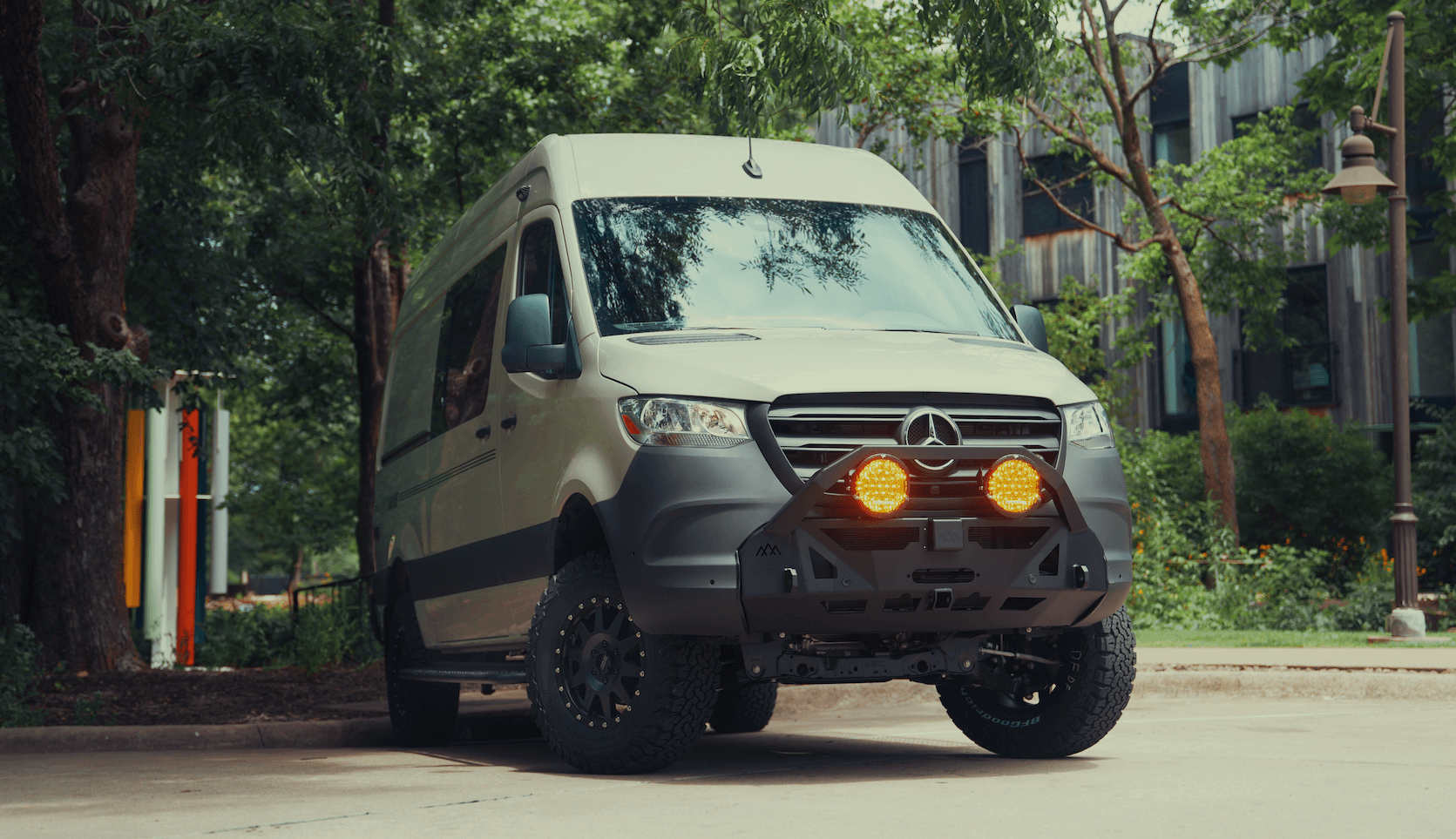Core principles of an off road recovery van
A recovery focused van is more than a trail camper with a winch bolted on. Think of it as a rolling anchor system with the space to carry rigging, tools, and lighting while staying within gross weight limits. The best builds start with clear mission profiles, terrain types, and realistic pull loads.
Chassis and drivetrain choices
- Choose a platform with strong axles, suitable wheelbase, and available four wheel drive or advanced all wheel drive. Low range gearing and locking differentials make controlled extractions possible on steep grades or loose surfaces.
- Match axle ratios to tire size so the driveline does not suffer when loaded.
- Confirm payload and gross vehicle weight rating early. Recovery gear is heavy, and exceeding ratings hurts reliability and braking.
- Aim for predictable approach, breakover, and departure angles without chasing extreme lift heights that raise the center of gravity.
Protection and suspension
- Recovery vans benefit from high clearance steel bumpers engineered with recovery rated mounts and reinforced frame ties. Rock sliders and skid plates protect sills, transfer case, fuel tank, and steering components when the trail gets rutted or rocky.
- Spring rates and shock valving should control added mass from bumpers, winches, tools, and spares. Stability matters more than soft articulation in a van’s long body.
- Keep weight centered and low. Roof racks are useful for long items but avoid stacking dense gear up high.
Tires, wheels, and brakes
- Size tires to the chassis and intended load. All terrain tread excels for mixed travel, while mud terrain patterns shine in clay and ruts.
- Select load rated wheels and consider beadlock capable hardware when frequent low pressure operation is expected.
- Carry an onboard air system for pressure management and a quality plug kit.
- Upgrade pads and rotors if weight approaches the upper end of payload to maintain confident stopping on descents.
Recovery systems, wiring, and on trail safety
A capable recovery van blends mechanical advantage with clean power delivery and disciplined rigging. The right parts matter, but how they are mounted, wired, and used matters more.
Winches and rigging kits
- A primary front winch should be rated at roughly one and a half times the van’s gross weight. Synthetic line reduces mass and is easier to handle, while a steel cable can tolerate abrasion when protected.
- A rear winch adds flexibility for controlled retreats. Where a rear winch is not feasible, plan for receiver mounted recovery points and progressive rigging techniques.
- Stock a balanced kit: kinetic rope, static straps, tree protectors, snatch blocks, soft shackles, steel bow shackles, line dampers, and edge guards.
- Traction boards, shovel, and a sturdy jack base turn a hard pull into a quick reset.
Power, wiring, and storage
- Winch circuits demand short, heavy gauge leads, sealed isolation, and proper fusing. Place contactors and disconnects where you can reach them even when buried to the frame in mud.
- Separate house power for radios, lighting, and tools from winch circuits to prevent voltage sags during pulls.
- Use secure, labeled cabinetry or cases for rigging. Loose shackles and snatch blocks become hazards in rough sections.
Scene lighting, comms, and planning
- High quality scene lighting around the van helps place anchors, read terrain, and track line angles after dark or in storm light. Favor warm tinted amber for dust and snow with white task lights at the work area.
- Reliable comms like GMRS or amateur radio keep teams coordinated beyond hand signals.
- Before pulling, calculate working load limits, mind line angles, clear bystanders, and create an escape plan. The safest recoveries look slow and boring from the outside.
From plan to trail ready build
Translating a spec sheet into a dependable machine takes careful integration. That includes welded recovery points tied to the frame, bumpers that balance strength with weight, clean electrical architecture, and serviceable layouts that keep tools where you need them. In Fayetteville Arkansas, terrain shifts from slick Ozark clay to ledgy limestone, so a regional recovery van benefits from traction aids, sealed electrics, and thoughtful underbody protection that sheds mud.
OZK Customs builds recovery capable vans with this whole system view. Our team evaluates payload, selects proper winch capacities, installs recovery rated bumpers and sliders, and wires power with service access in mind. We test fit rigging, mount scene lights, and configure storage so your gear stays orderly even after a long day on backroads. If you are planning a long range adventure platform that can also serve as a tow or trail support rig, explore our Recreational adventure vans. For a full spec session and one off integration, see our Custom van build process. Want a finance friendly starting point we can upfit into a capable recovery platform? Review our Financed mainstream vans.
What you get is a purpose built recovery van that balances power, protection, and payload with clean design. We do not rent rigs or coach DIY builds. We build them, validate them, and hand you the keys at our shop where you can shake down systems and enjoy the Northwest Arkansas trails before heading home.
Share your recovery needs, tire size goals, typical terrain, and any fleet requirements. We will translate your mission into a clear plan and a reliable van that pulls its weight without drama. Fill out the form below to start your build conversation today.
